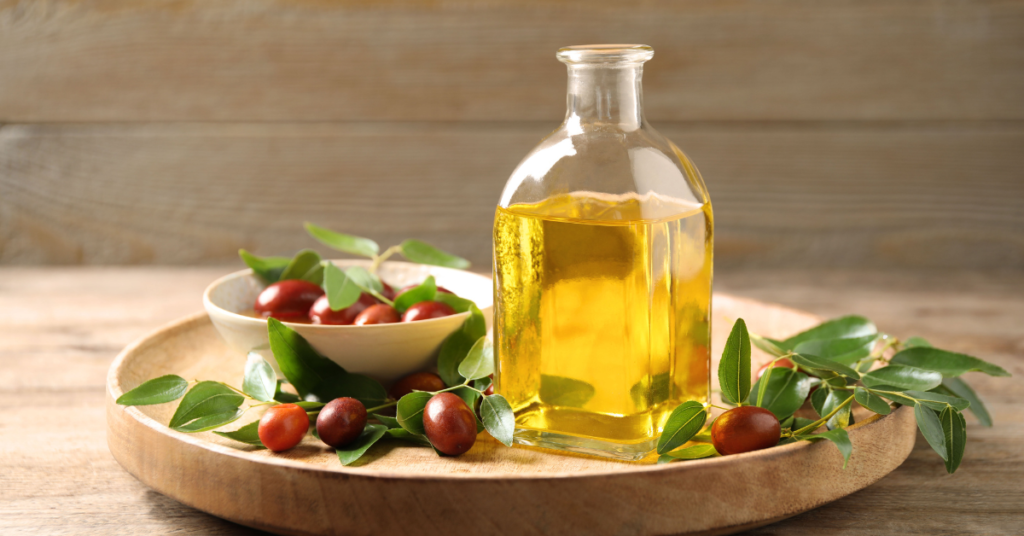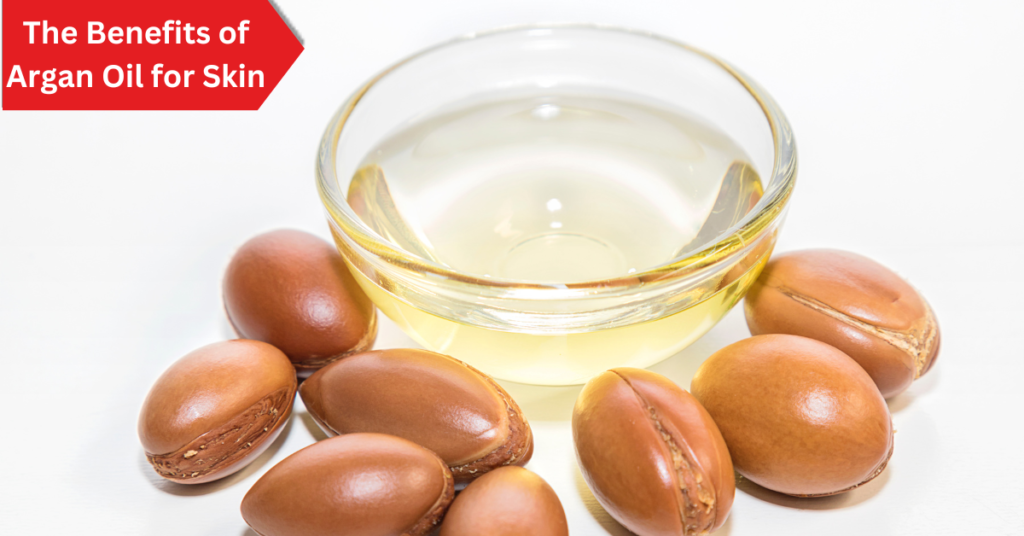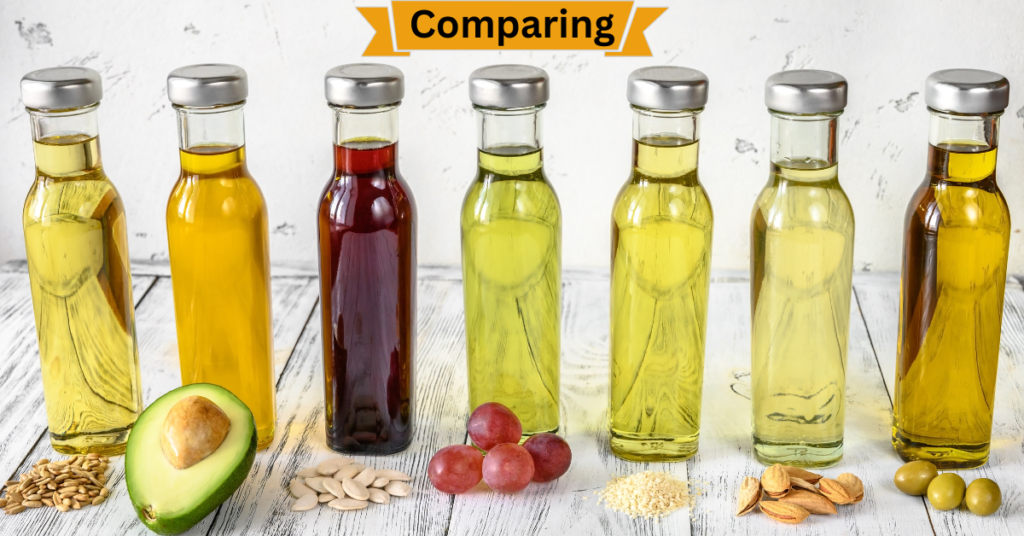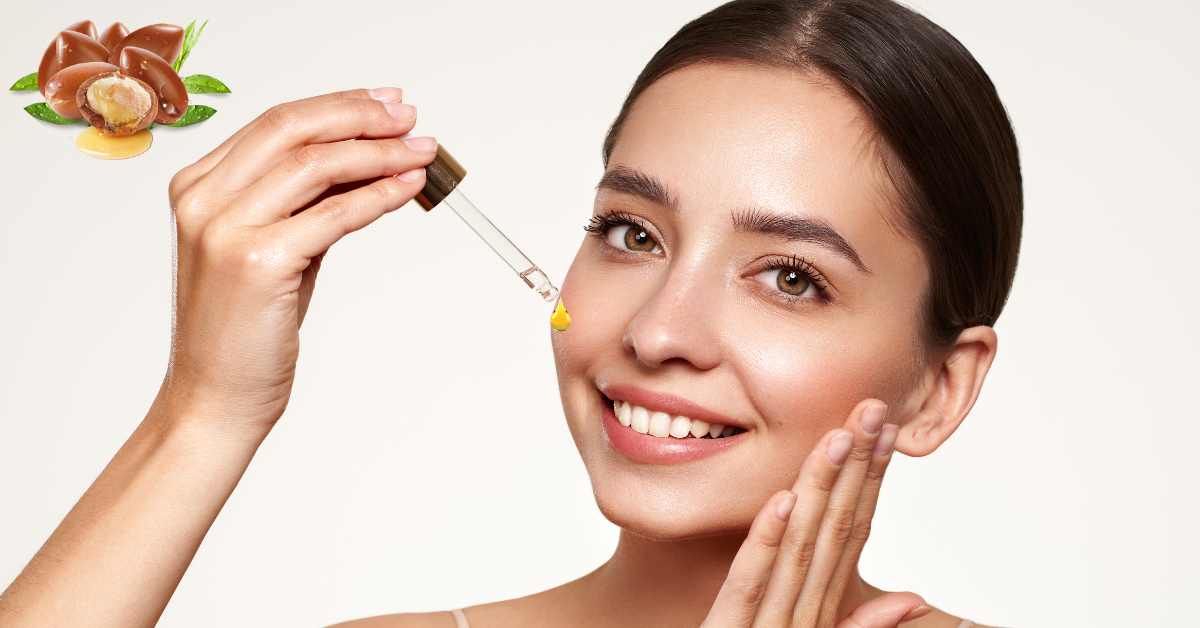Argan is super popular in lots of skincare products. People often call it “liquid gold” because it’s so good for skin, hair, and nails. But if have sensitive or acne-prone skin, you might wonder: Does argan oil clog pores? Here, we’ll dig into that question & related concerns about using argan oil in your skincare routine.
Table of Contents
What Is Argan Oil?

The nuts of the argan tree are the source of argan oil and it is found in Morocco. For centuries, Moroccan women have used it to protect their skin from the strong desert sun. Nowadays, argan oil is famous in skincare for its fatty acids & vitamin E. It’s nourishing & hydrating!
People use argan oil to moisturize their skin, heal dry spots, reduce redness, and even help with signs of aging. One cool thing about it? It’s a lightweight oil, which is why many love using it in their beauty routines across the globe.
What Does It Mean to Clog Pores?
Before we answer if argan oil clogs pores, let’s clear up what we mean by “clogging pores.” Your skin has tiny holes called pores. These let sweat & oils reach the skin’s surface. When they get blocked, dirt, oil, & bacteria get trapped inside. This can cause breakouts and blackheads.
Some ingredients in skincare (especially oils) can clog pores more easily. Products that are likely to cause blockages are called comedogenic. If they won’t clog your pores, they’re considered non-comedogenic.
Argan Oil and the Comedogenic Scale
To see if a product might clog your pores, check its rating on the comedogenic scale! This scale goes from 0 to 5 to show how likely something is to block your pores:
- 0: Won’t clog pores
- 1-2: Low chance of clogging pores
- 3: Moderate chance
- 4-5: High chance
Argan oil scores a big fat 0! This means it’s non-comedogenic & very unlikely to clog your pores. That’s awesome for folks with oily or acne-prone skin who want to use an oil-based product.
The Benefits of Argan Oil for Skin

Argan oil offers so many great benefits that it fits into any skincare routine easily! Here are some popular ways people use it:
◈ Moisturizing: It’s a fantastic moisturizer since it has fatty acids like linoleic acid. These help to lock in moisture & strengthen the skin barrier.
◈ Anti-Aging: The vitamin E in argan oil fights free radicals (bad guys that damage the skin), helping keep wrinkles at bay!
◈ Soothing Inflammation: Antioxidants in argan oil calm irritated skin & reduce redness. It’s perfect for sensitive or reactive skin.
◈ Healing Dry and Cracked Skin: Its nourishing properties can heal dry patches and conditions like eczema! It makes the skin feel soft & healthy again.
Does Argan Oil Work for Acne-Prone Skin?
People with acne-prone skin often worry about using oils; they fear oils will make things worse. But guess what? Because argan oil is non-comedogenic & has anti-inflammatory properties, it might be great for acne sufferers!
Its fatty acids help balance sebum (the natural oils) and stop the skin from producing too much—common for causing acne. The soothing nature reduces redness too! Plus, antioxidants help the skin heal & can reduce acne scars over time.
Comparing Argan Oil with Other Oils

There are many oils out there; how does Argan stack up against them when it comes to clogging pores?
◈ Coconut Oil: This one is heavier, scoring a 4 on the scale—which means it’s more likely to clog pores—especially if your skin is oily or prone to breakouts.
◈ Jojoba Oil: Like argan oil, jojoba is light. It scores a 2 on the scale so it’s also non-comedogenic!
◈ Olive Oil: Olive oil usually scores around a 2 as well; so it’s less likely to block pores but may still not be good for super-sensitive skin.
Compared with these oils, argan oil has one of the least chances of blocking pores!
How to Use Argan Oil Without Clogging Pores
Even if argan oil won’t clog your pores easily, here are some tips for using it without any worries:
◈ Use a Small Amount: Oils go a long way! Start with just a few drops & rub them onto your skin. Too much can make your face feel greasy!
◈ Apply on Damp Skin: After washing your face, use argan oil on slightly damp skin—it helps absorb better & locks in moisture right away!
◈ Layer Properly: If you use other products too, put lighter ones (like serums) on first before sealing with an oil like argan.
◈ Choose 100% Pure Argan Oil: Some products labeled as “argan” have extra stuff that may irritate or clog your pores! Always pick pure cold-pressed argan oil for best results.
Debunking Myths About Argan Oil
There’s lots of misinformation about oils out there—let’s clear up some myths about argan oil:
◈ Myth 1: All Oils Are Bad for Acne: Not True! While some oils do clog pores and worsen acne, others like argan help regulate production and smooth irritated areas.
◈ Myth 2: Argan Oil Will Make Your Skin Oily: Not at all! It’s lightweight & absorbs quickly so it won’t leave you shiny when used right.
◈ Myth 3: Argan Oil Causes Breakouts: Since it’s non-comedogenic; it’s unlikely to cause problems! Its anti-inflammatory properties might help reduce breakouts instead.
Can Argan Oil Be Used with Other Skincare Products?
Hmm, yes for the most part argan oil works well with a lot of in-skin care products. It is mild enough to combine with salicylic acid or benzoyl peroxide acne treatments, also moisturizing the skin so it does not get dry and flaking. It also works well with other anti-aging treatments, like retinol or vitamin C, to hydrate and calm the skin.
Argan oil is used after lighter, water-based products to seal in hydration. Highlinewellness CBD Skincare Serum is a light, fast-absorbing oil that doesn’t compete with any of your other actives, making it the perfect addition to just about any routine.
Argan oil can even intensify the effects of hydrants like hyaluronic acid. I use it after applying a hyaluronic acid serum and walking around the house, impressing myself with soft, plumped-up skin.
Conclusion
So does argan oil clog pores? Nope! The short answer is no way argan oil is non-comedogenic so it won’t block those precious little holes or give you breakouts! Instead, it delivers deep moisture, calms inflammation, and promotes glowing healthy skin.
Whether you’ve got dry skin or oily-acne-prone type. It can be such a great addition to your routine without worrying about clogged pores! Just remember: use it in moderation and go for pure quality stuff! Enjoy all those natural goodies without stress over your skincare concerns—thanks to wonderful argan oil!
More Interesting: The Ultimate Guide: Can I Use Niacinamide with Benzoyl Peroxide?
FAQS
Can argan oil cause breakouts?
Other examples include the lightweight texture of argan oil, which is a non-comedogenic (meaning it will not cause breakouts) oil and is able to regulate sebum production. These help to calm and soothe existing breakouts and reduce redness — actually making it the perfect acne treatment.
Is argan oil non-comedogenic?
Argan oil — yep, argan oil is non-comedogenic (aka not likely to clog your pores) Its comedogenic scale rating is just 0, so for the most part, it’s safe to use even on oily and acne-prone skin.
Is it OK to apply argan oil every day?
Argan oil can be considered safe to use every day for the most part. Lightweight and hydrating, it can be used every day on the skin to help moisturize your skin without it being too greasy. If you have never used Citrulline before, beginning with a small dosage might help to test your skin reaction.
Does argan oil lighten skin?
Argan oil is not a skin-lightening agent like other bleaching agents do. But its abundant vitamin E can do wonders for skin tone, not to mention texture, leading to an all-round glow. Over time, this might also assist in lowering the visibility of dark circles and marks, helping a brighter skin tone.
Is argan oil good for an oily face?
We now know that argan oil is good for oily skin, right? This is great because its texture is on the lighter end, which prevents pore-clogging yet also helps regulate oil production. This is moisturizing as well as anti-inflammatory moisturizer so; it is good for normal to oily and acne-prone skin.

